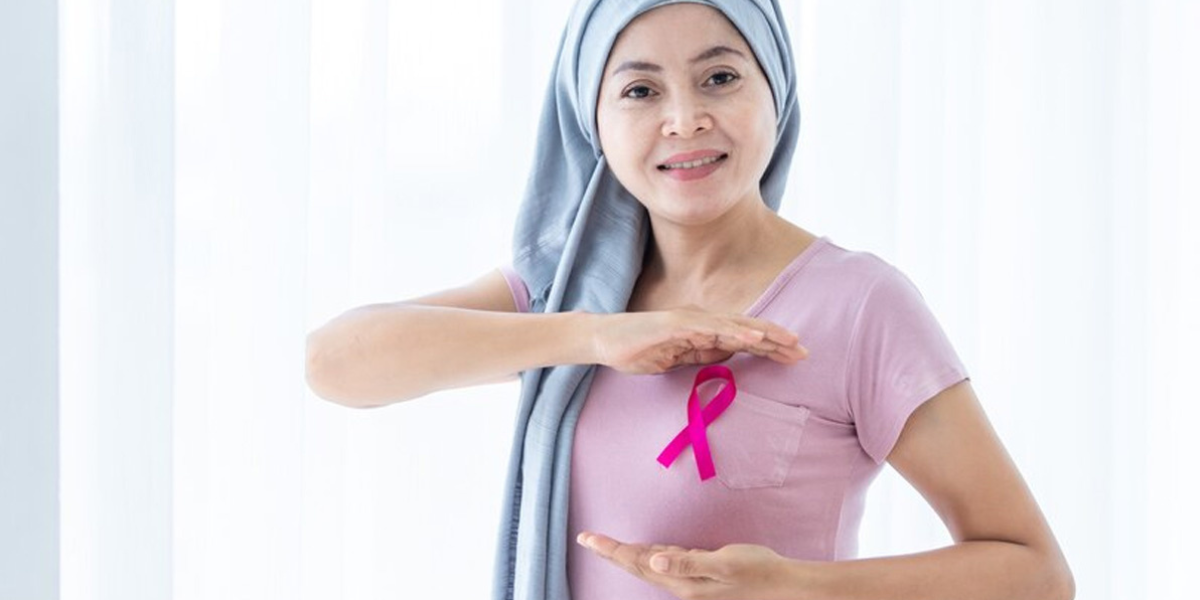Breast cancer. Two words that can trigger fear, confusion, and a million questions. While the topic is vast and complex, understanding the real causes of breast cancer – straight from the lens of oncologists – can empower women to stay informed and proactive.
Let’s dive deep into what really causes breast cancer in females, break down the myths, and explore what top breast cancer specialists in Mumbai have to say about it.
1. What Exactly Is Breast Cancer?
Breast cancer occurs when cells in the breast grow uncontrollably, forming a lump or tumor. If left unchecked, these cells can spread to other parts of the body.
2. It Starts With DNA Damage
Every cell in our body has DNA. Sometimes, due to various factors, this DNA gets damaged. When breast cells’ DNA is affected, they may begin to multiply rapidly, leading to cancer.
3. The Hormone Connection
Estrogen and progesterone – our primary female hormones – can play a role in fueling certain types of breast cancers. High levels, especially over long periods, may stimulate the growth of hormone – receptor – positive cancer cells.
4. Family History Isn’t Just a Buzzword
If your mom, sister, or grandmother had breast cancer, your chances go up. That’s because you might inherit faulty genes like BRCA1 or BRCA2, which significantly raise the risk. The best Breast cancer specialists in Mumbai often recommend genetic testing if there’s a strong family history.
5. The BRCA Gene – A Double – Edged Sword
BRCA genes usually help repair damaged DNA. But mutations in these genes make DNA repair faulty, raising the chance of cells turning cancerous. Women with BRCA mutations have up to an 80% risk of developing breast cancer.
6. Age Isn’t Just a Number
As you age, your risk of breast cancer rises. Most breast cancer cases are diagnosed in women over 50. Why? Because the older we get, the more cell damage accumulates, increasing the chances of errors during cell division.
7. Lifestyle Habits That Matter
Let’s be honest: what we eat, how much we move, and our daily routines shape our health. Several lifestyle factors increase the risk of breast cancer:
∙ Obesity (especially after menopause)
∙ Lack of physical activity
∙ Smoking & alcohol use
∙ Long – term use of hormone replacement therapy (HRT)
8. Your Menstrual History Plays a Role
Early periods (before 12) or late menopause (after 55) means a longer exposure to estrogen. That prolonged hormone exposure increases your lifetime risk of breast cancer.
9. Pregnancy & Breastfeeding – Nature’s Shield?
Women who have their first child after 30 – or don’t have children at all – may have a slightly higher risk. On the flip side, breastfeeding for a year or more seems to offer some protective benefits.
10. Previous Radiation Exposure
If you received radiation therapy to your chest (say, for treating lymphoma) before age 30, your chances of developing breast cancer later in life increase.
11. Environmental Toxins: The Silent Triggers
Pesticides, plastics with BPA, and other endocrine disruptors may mimic estrogen in the body. While research is ongoing, oncologists caution against excessive exposure to such chemicals.
12. Dense Breasts means Higher Risk
Women with dense breast tissue have less fat and more glandular tissue. This not only increases the risk but also makes detection harder on mammograms.
13. Inflammation & Chronic Stress
Emerging studies suggest that chronic inflammation and unchecked stress may weaken the immune system, reducing its ability to detect and destroy rogue cancer cells.
14. Is Breast Cancer Always Genetic? No.
Only about 5–10% of breast cancers are due to inherited gene mutations. The rest? A mix of age, environment, hormones, and lifestyle. That’s why even women with no family history can develop it.
15. When to See a Breast Cancer Specialist in Mumbai
If you notice:
∙ A new lump in your breast or underarm
∙ Changes in breast shape or size
∙ Dimpling or puckering of skin
∙ Nipple discharge or inversion
∙ Redness or scaling
Don’t wait. Book a consultation with a breast cancer specialist in Mumbai immediately. Early detection saves lives.
But here’s the good news: Knowledge is power. And being informed means you can take proactive steps – get regular checkups, maintain a healthy lifestyle, and listen to your body. Whether you’re at risk or just want peace of mind, never hesitate to reach out to a breast cancer specialist in Mumbai. They’re not just doctors – they’re lifesavers.
FAQs
1. What Causes Breast Cancer in Females?
Breast cancer is often the result of a combination of factors – some within your control, and others not. While genes and hormones can set the stage, lifestyle choices and environmental exposures also play key roles.
2. Can young women get breast cancer too?
Yes. While it’s more common after 50, breast cancer can affect women in their 20s and 30s, especially if there’s a family history or genetic predisposition.
3. Is breast pain a sign of cancer?
Not usually. Most breast cancers are painless in the early stages. But if pain is persistent or unusual, it’s worth getting checked.
4. Does wearing a bra increase the risk of breast cancer?
No. This is a common myth. There’s no scientific evidence linking bra use to breast cancer.
5. Can diet really influence breast cancer risk?
Absolutely. Diets high in fruits, vegetables, whole grains, and lean proteins can reduce inflammation and lower cancer risk.
6. How often should I get screened?
Women over 40 should consider annual mammograms. If you’re at high risk, a breast cancer specialist in Mumbai might recommend earlier or more frequent screenings.

